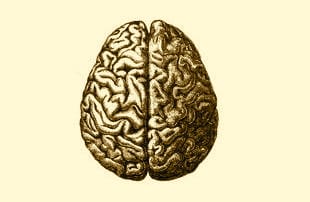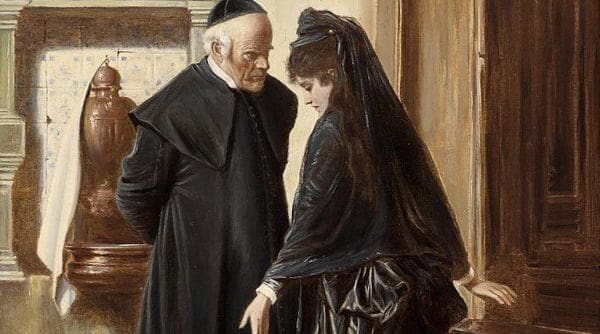Using the Catholic Faith As Part of Recovery
Being Catholic is a walk with resolutions. Every confession and examination of conscious ends with the resolve to do better. Although real changes don’t come easy, we rely on God’s mercy and begin again after each fall. But add in an addiction and failing becomes habitual and can cause a person feel like he is beyond God’s mercy.
 Research reveals that pleasurable activities such as gambling, shopping, drinking, drugs, and sex, can co-opt the brain. Addictions can cause an enlargement of the brain’s reward center and shrink the areas that control impulse. When researchers began to investigate addictive behavior in the 1930’s, it was believed that people with addictions were simply morally flawed or lacked willpower.
Research reveals that pleasurable activities such as gambling, shopping, drinking, drugs, and sex, can co-opt the brain. Addictions can cause an enlargement of the brain’s reward center and shrink the areas that control impulse. When researchers began to investigate addictive behavior in the 1930’s, it was believed that people with addictions were simply morally flawed or lacked willpower.
Today, scientists recognize addiction as a chronic disease that changes the brain’s structure and function. Thus, keeping resolutions are extremely difficult to do without professional help. Turning to God adds divine power to following a treatment plan, according to Dr. Peter Kleponis, Assistant Director at the Comprehensive Counseling Services in West Conshohocken, PA. He is also a marriage and family therapist and specializes in helping men overcome pornography addictions.
Kleponis’s new book, Integrity Restored: Helping Catholic Families Win the Battle Against Pornography, is a comprehensive look at the problem of pornography addiction in families and society. In a recent interview, he explained that pornography is as addictive as cocaine and impairs a person spiritually, emotionally, and physically.
Addictions need to be viewed as a disease and not a moral failing, according to Kleponis. “The emotional consequences of failure include shame, depression, anger, and low-self esteem,” Kleponis said. “But the most dangerous consequence is the loss of one’s relationship with God.” This loss, according to him, leads to isolation.
Eight years ago, recognizing how harmful and encompassing the pornography epidemic is in society, Kleponis became certified through the American Association of Christian Counselors in the diagnosis and treatment of sexual addictions. “I wanted a Christian perspective,” he said. Now, he is committed to a Catholic approach and is working with the Institute for Psychological Sciences in Arlington, VA to create a training program for Catholic therapists.
As part of recovery, Kleponis has outlined seven points which includes a Catholic spiritual plan. He stressed, however, that while Catholic spirituality is essential for a healthy recovery, it cannot stand alone.. “An addict needs to have self-knowledge and commitment and he must purify his life,” Kleponis said. “In addition, counseling is needed to identify and resolve the root causes of addiction; education is needed to understand the addiction and recovery process; and virtue is needed to become the person God created him to be,” he said. Rather than go it alone, Kleponis explained that support and accountability are crucial to end loneliness and shame.
Kleponis stressed that religion should not be used in place of treatment. “Most addicts will say they spend years praying for freedom, but never experienced it,” he explained. “It is only when we combine Catholic spirituality with the other points of recovery that an addict can experience God’s  true freedom.”
true freedom.”
Our Catholic faith offers many ways that individuals with addictions can understand and experience God’s love, according to Kleponis. “Through the sacrament of Confession, a priest has the opportunity to share God’s mercy so the individual can physically hear that God loves and forgives him,” he said. “Confession gives men the strength to persevere in recovery and helps wives to forgive their husbands and persevere in marriage.”
![NinoComulgando[BoyReceivingCommunion]](https://spiritualdirection.com/wp-content/uploads/2014/10/NinoComulgandoBoyReceivingCommunion-150x150.jpg) “Whether married or single, receiving the Eucharist is an essential element for Catholics in the recovery process,” Kleponis stated. “Knowing Christ died for the addicted person and that he can receive him every day can be very healing.” He recommends receiving these sacraments often although warns that it’s not realistic to expect the addiction to just magically go away.
“Whether married or single, receiving the Eucharist is an essential element for Catholics in the recovery process,” Kleponis stated. “Knowing Christ died for the addicted person and that he can receive him every day can be very healing.” He recommends receiving these sacraments often although warns that it’s not realistic to expect the addiction to just magically go away.
 Kleponis suggests the assistance of a spiritual director to help develop a healthy intimate relationship with God rather than seeing God as a taskmaster. Other spiritual aids he recommends are: daily prayer, Scripture, the rosary, novenas, holy hours, and fasting. “When we fast, we deny ourselves certain luxuries,” he said. “Whenever we miss those luxuries, it can
Kleponis suggests the assistance of a spiritual director to help develop a healthy intimate relationship with God rather than seeing God as a taskmaster. Other spiritual aids he recommends are: daily prayer, Scripture, the rosary, novenas, holy hours, and fasting. “When we fast, we deny ourselves certain luxuries,” he said. “Whenever we miss those luxuries, it can  remind us that we need to stay focused on God.”
remind us that we need to stay focused on God.”
The struggles and pain of addiction need not be wasted, Kleponis said. “It has a practical use; it can be offered up for others who are struggling with addiction.” Sacramentals offer additional spiritual aid. “A crucifix, icons in every room, wearing medals or the brown scapular, using holy  cards in prayer–they are all reminders of God’s love for us,” he said. “Keeping blessed salt and St. Benedict medals nearby can help ward off temptation from the evil one.” He explained that they can aid in recovery by offering tangible reminders of God’s love and care.
cards in prayer–they are all reminders of God’s love for us,” he said. “Keeping blessed salt and St. Benedict medals nearby can help ward off temptation from the evil one.” He explained that they can aid in recovery by offering tangible reminders of God’s love and care.
Where there are damaged family relationships–which Kleponis said is common among people with addictions–the Catholic faith offers healing. He pointed to the Blessed Mother as offering the love of a gentle spiritual mother and turning  to St. Joseph to provide the love and affirmation of a protective spiritual father. “Addicted persons whose parents have divorced, can turn to the Holy Family as an intact, stable, loving family,” Kleponis added. “This can help those struggling with forgiving their parents.”
to St. Joseph to provide the love and affirmation of a protective spiritual father. “Addicted persons whose parents have divorced, can turn to the Holy Family as an intact, stable, loving family,” Kleponis added. “This can help those struggling with forgiving their parents.”
Most important for every Catholic is the Mass, Kleponis said. “It is an encounter with a loving heavenly Father,” he said. “Receiving the Eucharist is a reminder that God so loved the world that he gave us his only begotten Son, and Jesus loved us enough to die for us.”
In the end, Kleponis said recovery is work, but the payoff is worth it. “It means growing closer to God, healing and restoring relationships, enjoying the present, and looking forward to a bright future.”
For more information on Dr. Kleponis’s Catholic program for recovery see http://peterkleponis.com
To purchase Dr. Kleponis’s book Integrity Restored: Helping Catholic Families Win the Battle Against Pornography click here or here.
+
Art: Sepia of Cerebro Humano (Human Brain), Carente de Fontes, AndreFTG, 6 May 2008, PD-Worldwide; The Confession, Giuseppe Molteni, 1838, CC-SA; Niño Comulgando [Boy Receiving Communion], EmilianoFilipi, December 11 2011, own work, CC; Ein ernstes Gespräch (A Serious Conversation), Ludwig Johann Passini, by 1902, PD-US; Rosary 2006-01-16, Daniel Tibi, 2006, PD-self; Golden Crucifix, April 2006, own work, Nino Barbieri, CC; all Wikimedia Commons. Madonna in Prayer, Giovanni Battista Salvi da Sassoferrato, 1638-1652, copyright Restored Traditions, used with permission.




